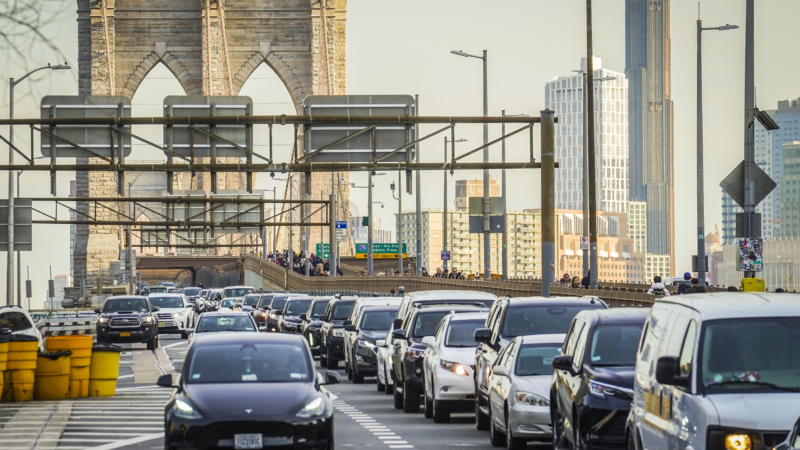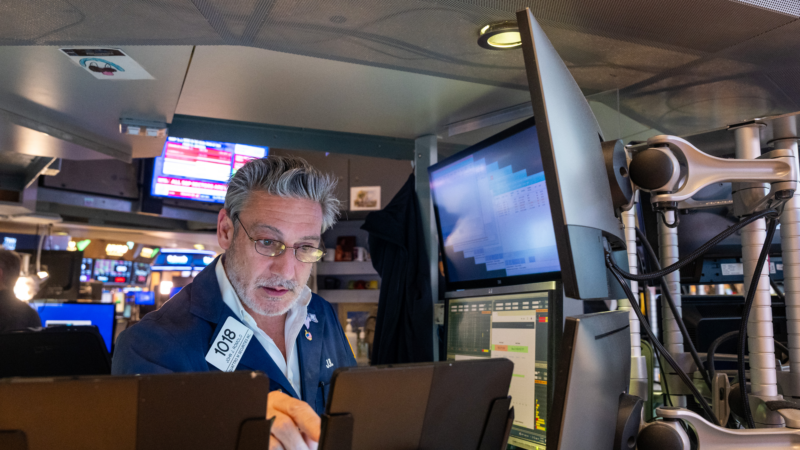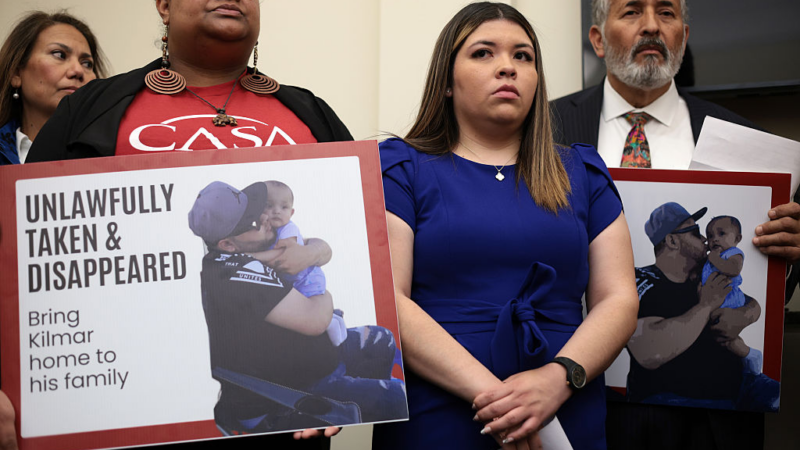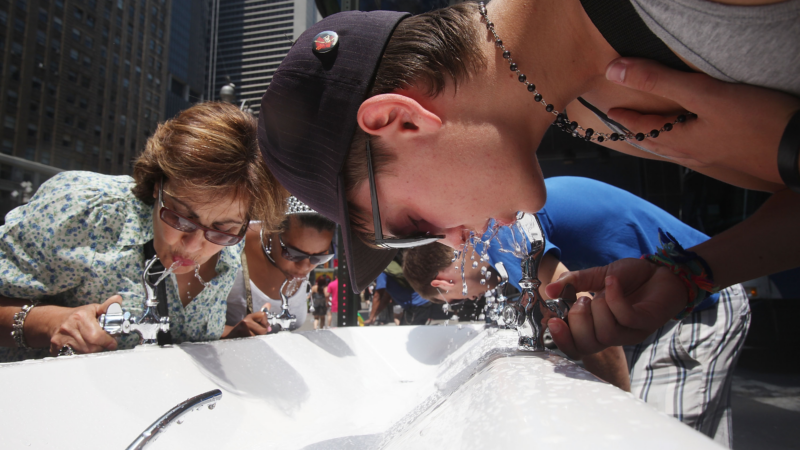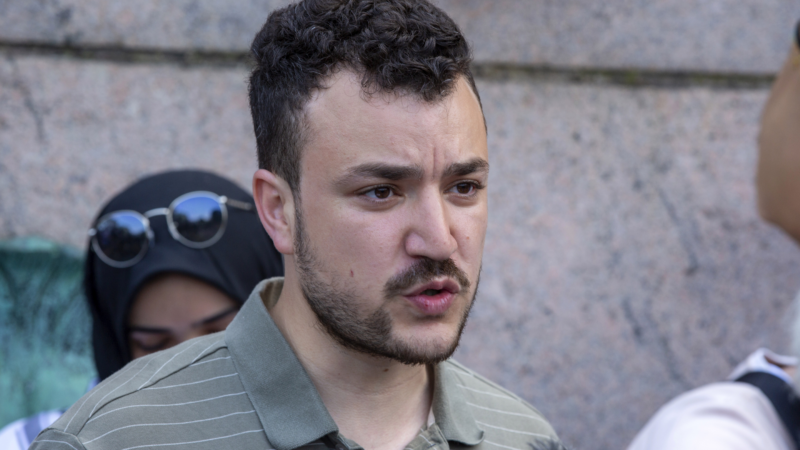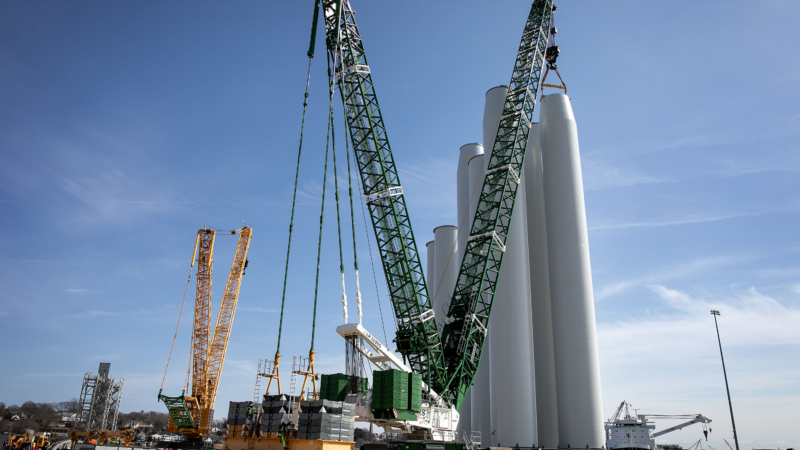Congestion pricing begins in NYC in a high stakes test for the model’s U.S. viability
Congestion pricing was introduced in the center of New York City on Sunday, after a late attempt by officials in neighboring New Jersey to stop it in court failed.
The measure — which charges many drivers $9 dollars to enter Manhattan during peak hours — is intended to bring relief to the country’s most populous city. According to traffic-data analysis firm INRIX, New York had the worst traffic in the world in 2023: drivers lost 101 hours to traffic during peak commuting times.
Advocates say the new charge, which is the first of its kind in America, will ease traffic gridlock, improve air quality and help raise $15 billion for upgrades to New York’s beleaguered transit system.
Some also hope the measure will reduce the number of traffic fatalities in the city. More than 250 people died in traffic incidents in New York City in 2024, including 115 pedestrians.
But others, including President-elect Donald Trump, have signaled they won’t give up in fighting it.
Most drivers will be charged via their E-ZPass, an electronic toll collection system used in many states. Electronic detection points have been created at entrances to and exits from the tolling zone. Anyone without an E-ZPass will receive a bill sent by mail to the registered owner of the vehicle.
The program follows similar initiatives in busy cities such as London, Singapore and Stockholm — where the concept has proved effective in reducing traffic and promoting public and alternative modes of transportation.
New York Gov. Kathy Hochul paused the plan six months ago, saying the original price of $15 a day was too much, before reintroducing it at the new reduced rate. If the charge is a success, peak rates are set to rise to $12 by 2028, and to $15 by 2031.
On top of the $9, drivers are already charged to cross many bridges and tunnels to enter Manhattan. However, there will be a credit of up to $3 for those who have already paid to enter the city via certain tunnels during peak hours.
The charge affects vehicles entering Manhattan between 60th Street and the Battery: covering busy areas including the theater district, Times Square, Hell’s Kitchen, Chelsea and SoHo. It was started on a Sunday in order to allow the Metropolitan Transportation Authority enough time to fix any kinks, during a day when traffic is quieter than usual.
There are different costs for different vehicles: motorcyclists pay less, while there are higher rates for drivers of smaller commercial trucks and some buses, as well as larger trucks and tour buses.
In addition, passengers in taxis and other for-hire vehicles, including Ubers, will pay a surcharge on each fare to, from, within or through the congestion zone. The surcharge is 75 cents for a taxi, green cab or black car, and $1.50 for an Uber or Lyft.
There are some exemptions and discounts. Authorized emergency vehicles and vehicles carrying people with disabilities are not charged, while some residents inside the zone may be able to apply for a state tax credit. On top of that, low-income drivers can register for a 50% discount after their first 10 trips per month.
The plan has divided New Yorkers. Queens resident Jessame Hannus told Gothamist called it a “really important step,” saying, “I think it’s important in this country, in this time in our world, to think about the climate.” But others, like Michael Alvarez, said he hated the plan.
“I don’t think us New Yorkers, we deserve this,” he said. “Especially promising safer subways when they’re not even doing anything about it. They’re making us pay so much money for what? For nothing.”
The idea has been debated for decades. At least 10 lawsuits have been filed over congestion pricing, including a last-ditch effort from the state of New Jersey to have a judge put up a temporary roadblock against it, which failed on Saturday after a federal appeals court upheld an earlier ruling against the state’s suit.
Why some are accusing Trump of manipulating stock markets
Senators Adam Schiff and Ruben Gallego have asked for "an urgent inquiry" into whether President Trump or others engaged in insider trading on advanced knowledge of his tariff policy changes.
Supreme Court says Trump officials should help return wrongly deported Maryland man
The Supreme Court ordered the administration to "facilitate" the return of Kilmar Armando Abrego Garcia, who was mistakenly taken to El Salvador and remains in custody there.
15 hours later, a grueling ER shifts ends in ‘The Pitt’ season finale
The first season of The Pitt focused on the toll that work takes on doctors and nurses. It's also been a stellar season of TV.
HHS will review guidance on the addition of fluoride to drinking water
HHS Secretary Robert F. Kennedy Jr. has blamed the addition of fluoride — a common, naturally occurring mineral — for a host of health issues. The CDC says the policy has reduced cavities by some 25%.
Trump administration lays out its evidence for deporting activist Mahmoud Khalil
Khalil's attorneys say the government's case against their client largely rests on a single letter from Secretary of State Marco Rubio alleging that Khalil participated in "antisemitic" and "disruptive activities."
The Northeast bet big on offshore wind. Trump wants to halt the industry entirely
Northeast states have bet big on offshore wind to meet spiking power demand and drive economic growth. But the industry's future is much more uncertain under President Trump.

